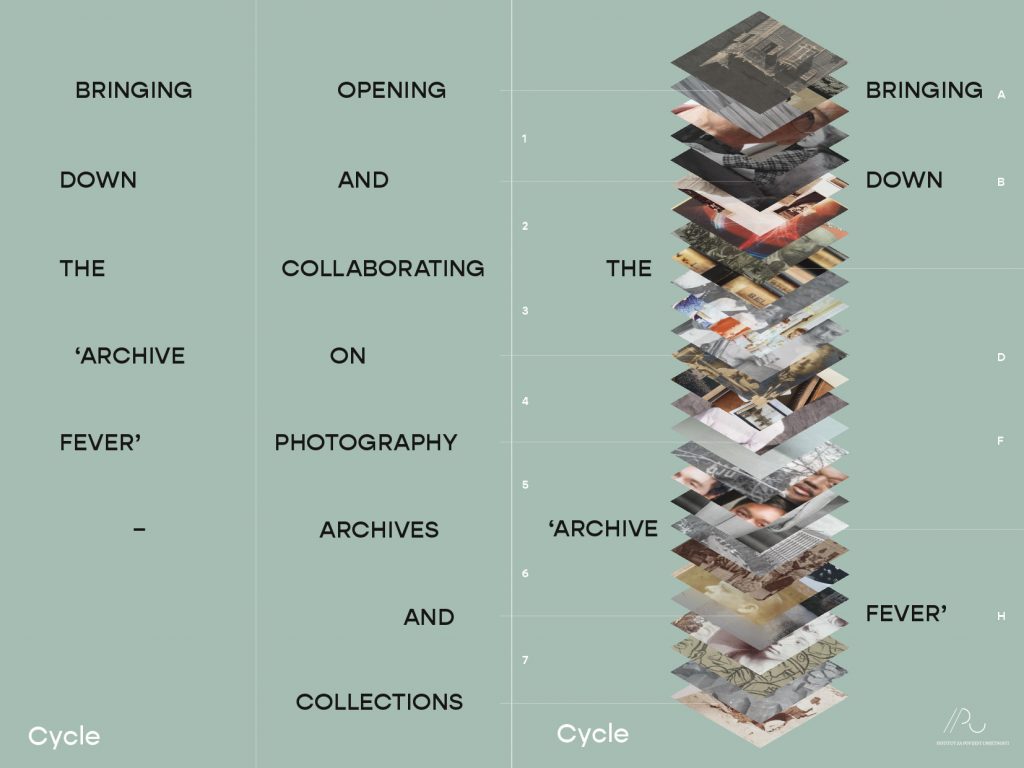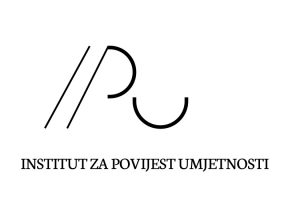International conference Bringing down the Archive Fever will take place from 20 to 22 October, 2021 at Urania (Trg E. Kvaternika 3/3, Zagreb) and online via Zoom. The conference is organized by the Institute of Art History and is part of the project The Cycle: European Training in Photographic Legacy Management (2020 – 2022), financed by the European Union (Creative Europe programme).

Photography archives are more than just collecting, writing about and curating. Photography archives are collections of photographic material and the accompanying documentation that contextualizes, explains and / or describes it. Recent global discussions confirm that archives are responsible for major changes in many discourses – institutional, educational, historical, etc. They provide necessary impulses for networking and raise awareness about the urgency to protect those still undetected, not yet announced, while encouraging new knowledge through continuous research and interpretation. Archives are inevitable in critical thinking on how the past has impacted our contemporary moment. Photographic archives are important cultural testimony and can be used for the promotion of history as well as its reconsideration, for the establishment of civilizational values which have been threatened throughout history. This is especially emphasised in the case of women photographers, who have been predominantly left out of the collecting discourse.
Numerous archives exist in institutions all over the world; yet, many of them are still lacking in attention from researchers and the general public. In addition, many photographers and/or members of their families continue to keep archives in private hands, often without basic knowledge on how to maintain them and open them to the public or how to connect with institutions, at least partially. The aim of this conference is to explore the ways in which photographs have been archived and collected, both private and public ones. We are also encouraging the establishment of a network to exchange knowledge and skills needed in photographic practice, study, circulation and collaboration, while highlighting the social, political, representational discourse of the history of photography and its present, as well history, critical theory, art history, visual studies, archival studies, anthropology, other humanistic and social disciplines. Efficient management can help ensure the life of the photographic work. Therefore, the conference, as part of The Cycle – European Training in Photographic Legacy Management project, put into discussion new and sustainable forms of preservation and valuation of photographic artworks.
The conference is divided into six panels: Large archives, Constructing the archive – private or public interest?, ‘Adding’ women into existing archival narratives, Epistemological and interdisciplinary perspectives, Archive as artistic device, Ethics of archive research and construction of memory. We have already suggested in their titles the width of reception of contemporary photographic archives, which can be viewed both chronologically, but also thematically. The presentations will tackle the ways of preserving the original structure of the archive on its entering into an institution, but also the small archives developed by artists on their own, which were often left forgotten and were discovered by accident. The intention of the conference is to show that photography is not just a diapositive of an image, but a medium which contains stories, commentaries, texts and history. These so-called ‘collisions’ of knowledge, opinions, images and texts which accompany them testify to a heterogeneous field that cannot be synthesized.
Faced with the archival impulse – which can on the one hand appear as a chaotic installation of an artist or writer, and on the other as a neatly folded, ancient register – we are trying to pacify the archive fever, whose temperature was at one point measured by Jacques Derrida, by discussing different issues: from archaeology, procedures applied when archiving asylums, over meeting the early scene of female photographers in Scandinavia and still insufficiently known destinies of Central and Eastern Europe, to recent questionings of archival practices about the memory culture of the Iberian peninsula. Defined and already categorized, or in the process of creation, archives show the need to be detached from standard processes of classification while maintaining the focus on photography as a cultural practice and an indefinite field of knowledge, memory and meaning depending on the image.
–
Keynote speaker
Costanza Caraffa – Archival Transformations and the Value of Photographic Objects
The book of abstracts could be downloaded from the link
The conference is organized both live and online. To register and get the meeting’s details, please contact us at cyclezagreb2021@gmail.com. Due to Covid-19 restrictions, the attendance in person should also be announced by sending an e-mail to the same address with your name and surname. The conference will also be livestreamed on the Institute’s Facebook page.
–
Organizing Committee
Sandra Križić Roban
Lana Lovrenčić
Irena Šimić
Ana Ćurić
Lucija Habuš
–
Project The Cycle: European Training in Photographic Legacy Management gathers five partner institutions from France, Spain and Croatia. The leading partner of the project is Spéos (FR). In addition to the Institute of Art History, the project includes the following partners: Office for Photography (HR), Magnum (FR) and Deusto (ES). The objective of the project is to develop a transnational training and networking program in Photographic Legacy Management.

More about the project here.
–
Contact: Sandra Križić Roban, Ana Ćurić


